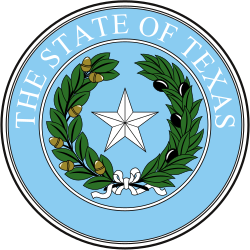November 6, 1894 | |||||||||||||||||||||
| |||||||||||||||||||||
 County results [1] Culberson: 30–40% 40–50% 50–60% 60–70% 70–80% 80–90% 90–100% Nugent: 30–40% 40–50% 50–60% 60–70% 70–80% Makemson: 20–30% 30–40% 40–50% 50–60% 60–70% Schmitz: 40–50% 50–60% Scattering / Write-in: 30–40% No Results: | |||||||||||||||||||||
| |||||||||||||||||||||
| Elections in Texas |
|---|
 |
The 1894 Texas gubernatorial election was held to elect the Governor of Texas. Attorney General Charles Culberson was elected Governor with a plurality of the vote over Populist candidate Thomas Nugent.


